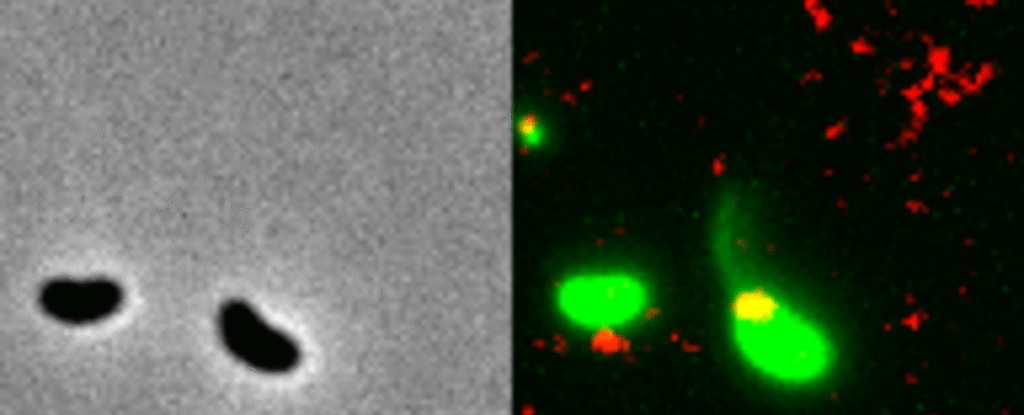“Horizontal gene transfer is an important way that antibiotic resistance moves between bacterial species, but the process has never been observed before, since the structures involved are so incredibly small,” said biologist Ankur Dalia of Indiana University Bloomington.
Bacteria are slippery little suckers. They evolve rapidly, developing resistance to antibiotics and therefore becoming increasingly difficult to deal with. Now, for the first time, researchers have caught on film one of the mechanisms the microbes use for this speedy evolution.
Two Vibrio cholerae bacteria — the pathogen responsible for cholera — sit under a microscope, glowing a vivid green. As we watch, a tendril snakes forth from one of the bacterium, harpooning a piece of DNA and carrying it back to its body.
That appendage is called a pili, and the process whereby the bacteria incorporates the new genetic material from a different organism into its own DNA to expedite its evolution is called horizontal gene transfer.
